It's no secret that oil is the lifeblood of a vehicle's engine, as it keeps your engine running smoothly and maintains proper operating temperatures. But how hot does oil get in a car? Let's take a look at what your car's oil temperature should be.
Most mechanics will agree that engine oil should stay between 220-250 degrees Fahrenheit. Engine oil temperatures above 275 degrees Fahrenheit will cause the engine to overheat and possibly shut down. If you notice a burning smell or the temperature gauge is in the red, then pull over to a safe area and let the engine cool.
It's important to understand when your engine is overheating to avoid irrecoverable damage. In this article, we will take a closer look at normal oil operating temperatures. In addition, we will answer other frequently asked questions about engine oil, so read on!
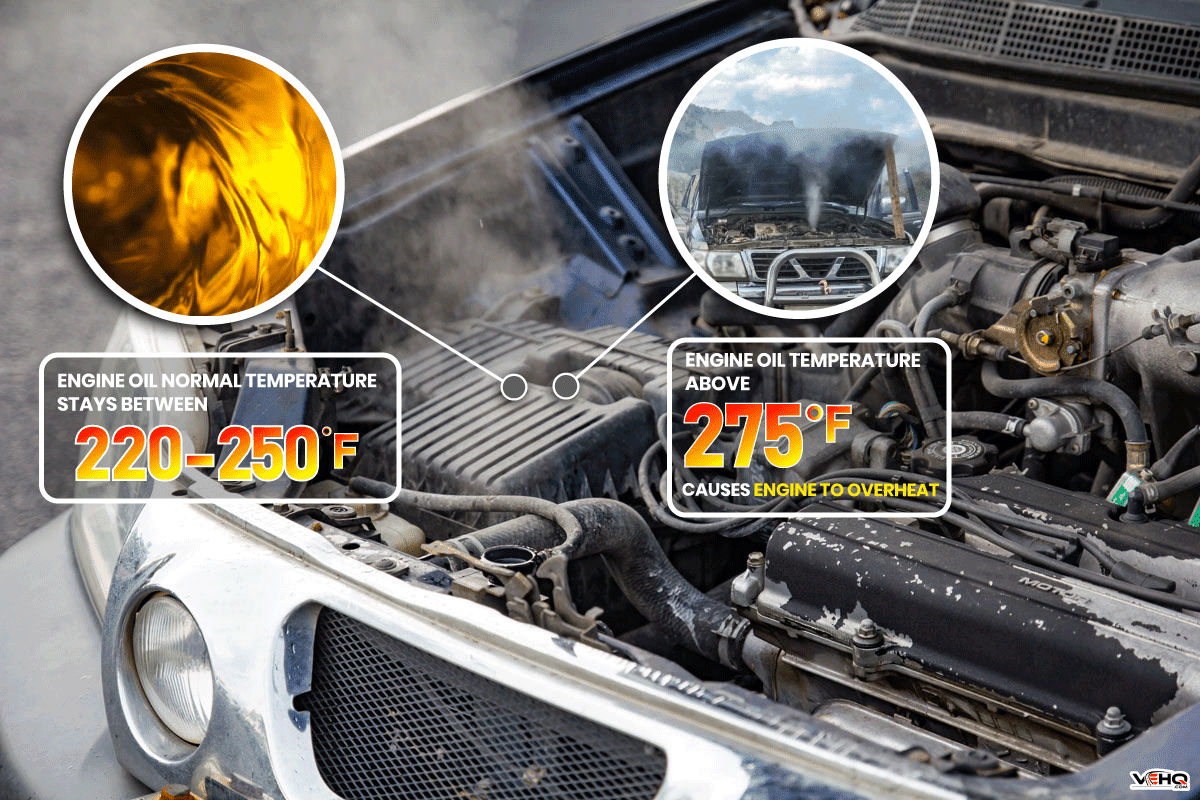
What Is The Normal Oil Temperature In A Car?
It doesn't matter if it's conventional or synthetic oil, your engine needs it in order to function properly. Motor oil lubricates the moving parts in your engine to reduce friction and wear and tear.
When there isn't enough oil, your engine can overheat, which can lead to expensive repairs. Under normal operating temperatures, the engine oil will typically stay between 220-250 degrees Fahrenheit.
However, the oil temperature can exceed this when under heavy stress. For example, if you are hauling a heavy load up a steep incline, your engine will have to work overtime, causing the engine oil to overheat.
If the engine oil reaches temperatures over 275 degrees Fahrenheit, it can cause damage or complete engine failure. If you notice a burning smell or see the engine temperature gauge go into the red, it's best to pull over to a safe area and address the situation.
While you are trying to find a safe place to pull over, turn your heater on. It may sound counterproductive, but turning the heater on will draw heat away from the engine.
After pulling over, turn the engine off to let it cool for 15 minutes. You should also open the windows to let heat escape.
Avoid opening the hood right away, as this can increase the risk of burns. If you aren't able to call a friend or tow truck, turn the engine on and drive to the nearest automotive repair shop.
The engine oil isn't always to blame for an engine overheating, so let's take a look at the possible culprits.
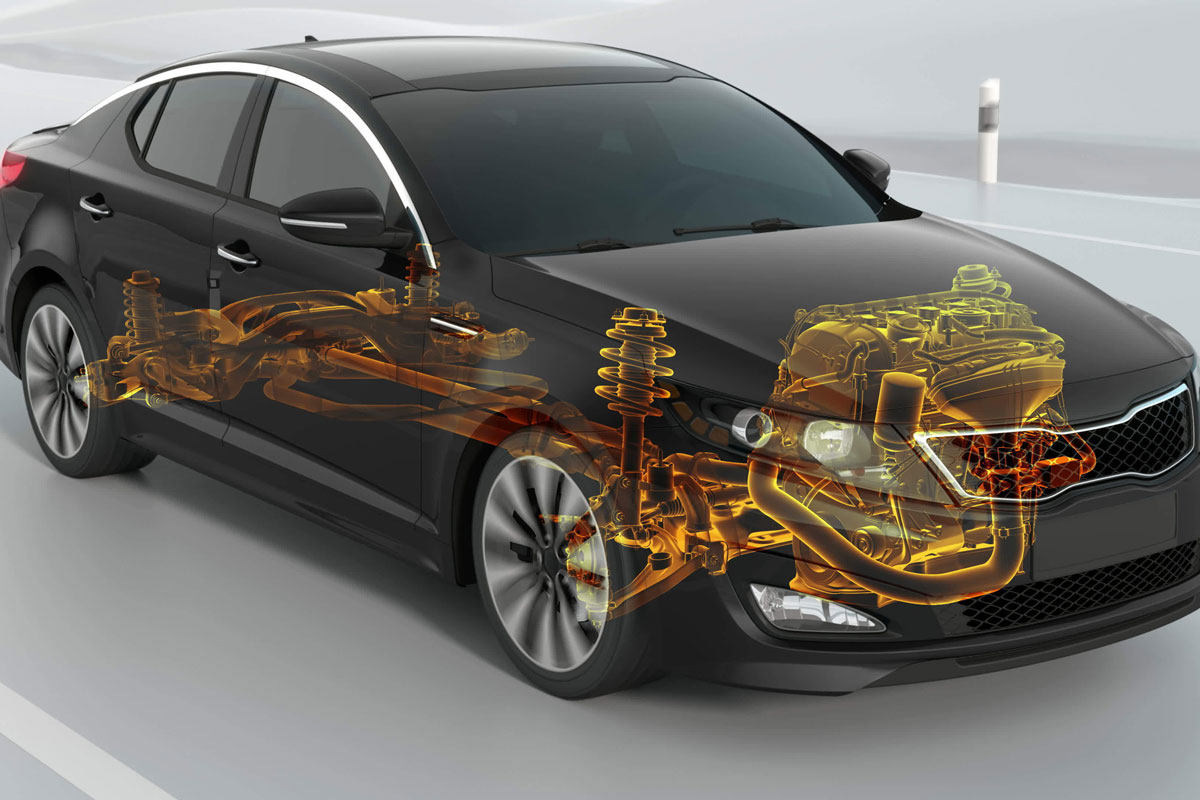
Low Oil Levels
One of the most common reasons your engine is overheating is a lack of oil. When oil levels get low, there is an increase in friction between the moving parts. As a result, you will be greeted with a burning smell and an overheating engine.
This is why it's important to check your engine levels frequently. Before you go on a road trip or plan on towing, you should double-check that your engine oil is at recommended operating levels.
It's also possible that you have an oil leak. This could be due to a stripped oil plug or an overtightened oil filter. Check your dipstick, fill your engine with oil, and then check for signs of leaks.
Contaminated Oil
When oil is fresh, it will have a dark but gold tint. Over time, the oil will get impurities stuck in it, which will decrease its ability to lubricate the engine.
When checking your engine levels, see if the engine oil has a dark hue. This is a sign that the oil is contaminated and needs to be changed.
Low Coolant Levels
If the oil levels and color look good, then the overheating could be due to low coolant levels. The coolant's sole responsibility is to keep the engine cool; without it, your engine will overheat.
If you are unsure how to check and fill your coolant, refer to your owner's manual. When refilling the coolant, check for leaks, as it's possible to have a hole in the reservoir. If this is the case, drive to the nearest auto repair shop to have it replaced.
Failing Water Pump
The water pump sends coolant throughout the engine to keep its normal operating temperatures. Like oil, the coolant can become contaminated with debris and clog. This can cause the water pump to fail and your engine to overheat.
Bad Thermostat
Your vehicle has an engine thermometer that lets the engine know when it needs coolant. If your thermostat is failing, it won't send coolant when needed causing the engine to overheat.
Clogged Or Damaged Radiator
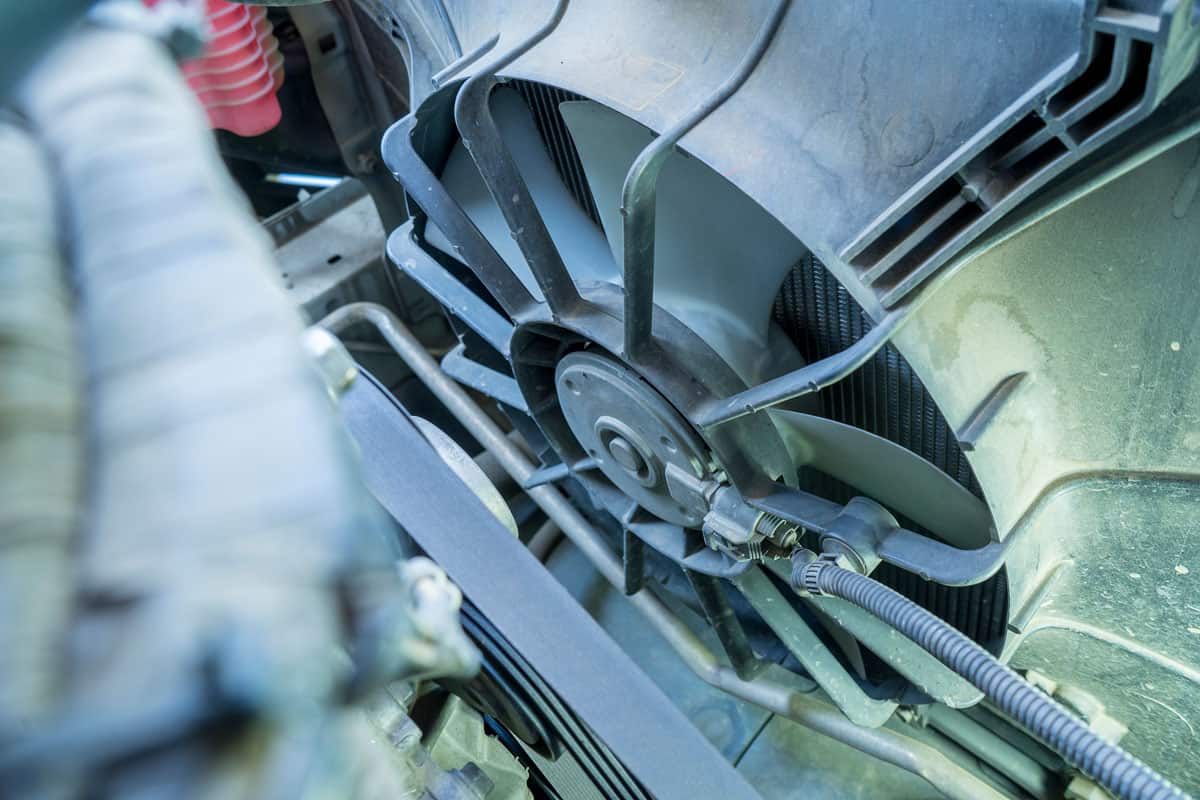
When your radiator is clogged or cracked, it won't be able to pull heat away from the cooling system. This can cause your engine to overheat, possibly causing damage.
The issue could also be the radiator fan not working properly. The radiator fan pulls the air that keeps the coolant system cool.
Worn Hoses Or Belts
A vehicle has a system of hoses and belts that helps move the coolant and other fluids throughout the engine. If any of them are worn or leaking, then they can obstruct the cooling system, causing your engine to overheat.
To avoid these issues, it's important to do an engine inspection each year. Your mechanic will be able to check the fluids and major components that keep your engine running smoothly.
If your mechanic notices parts that are on their way out, it's best to have them replaced. Letting issues go can not only lead to more expensive repairs but could also leave you stranded.
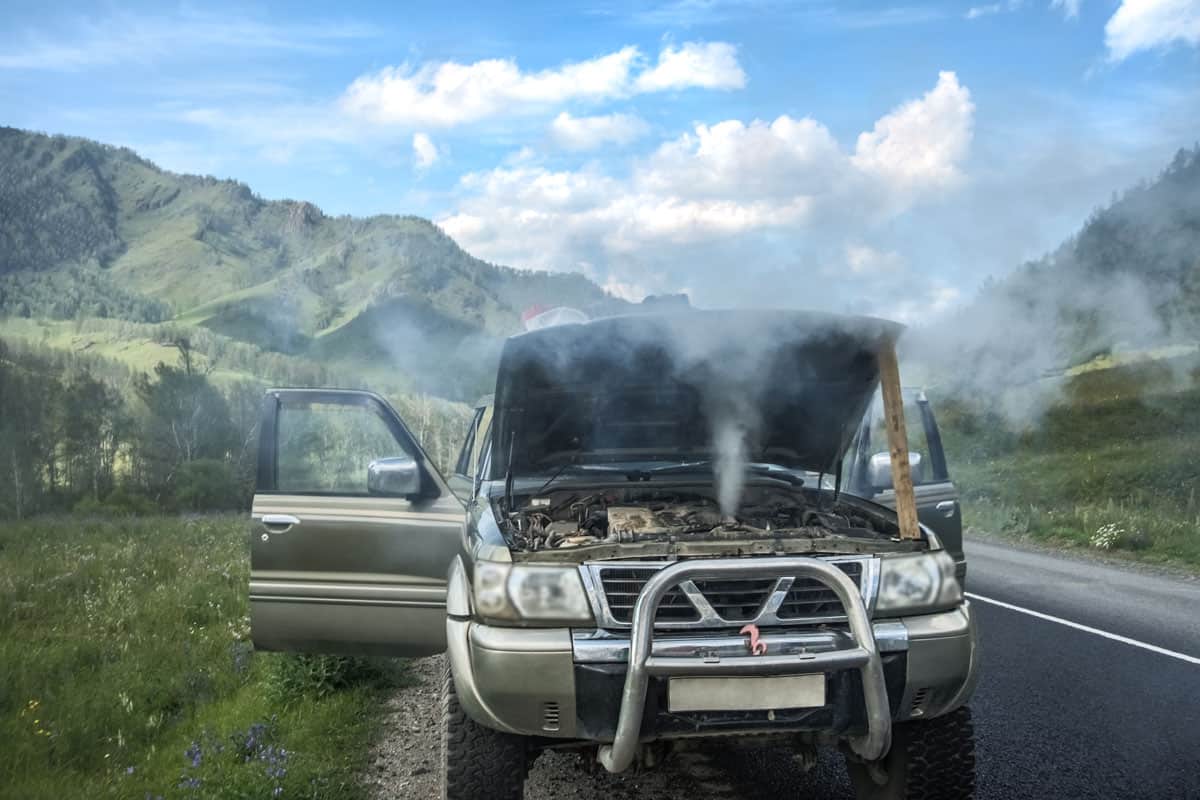
How Often Should I Change My Engine Oil?
Unfortunately, engine oil doesn't last forever and needs to be changed regularly to ensure your engine is operating at its best. However, there are a few factors that determine when you should change your engine oil.
First is the type of oil you use. If you opt for conventional oil, typically, you will need to change it every 3,000-5,000 miles. For synthetic oils, the change intervals can range from 5,000-10,000 miles or more. This is due to synthetic oil's ability to resist sludge when the engine is exposed to extreme heat.
The type of vehicle you have will also factor in how often you should change your engine oil. For example, some diesel vehicles can go over 10,000 miles before needing an engine change. The best option is to check your owner's manual for oil change recommendations.
Lastly, your driving habits will affect how often you need to change the engine oil. If you don't drive frequently, then you may be able to go longer between oil changes. For those who drive their vehicles hard or constantly drive in stop-and-go traffic, then you may need to change your engine oil more often.
If you don't reach the mileage intervals for an oil change, then you will need to go by the recommended time frame. Typically, the time frame is every 3 months, 6 months, or a year. This will depend on the factors mentioned above and your manufacturer's recommendations.
What Do I Do If My Engine Catches Fire?
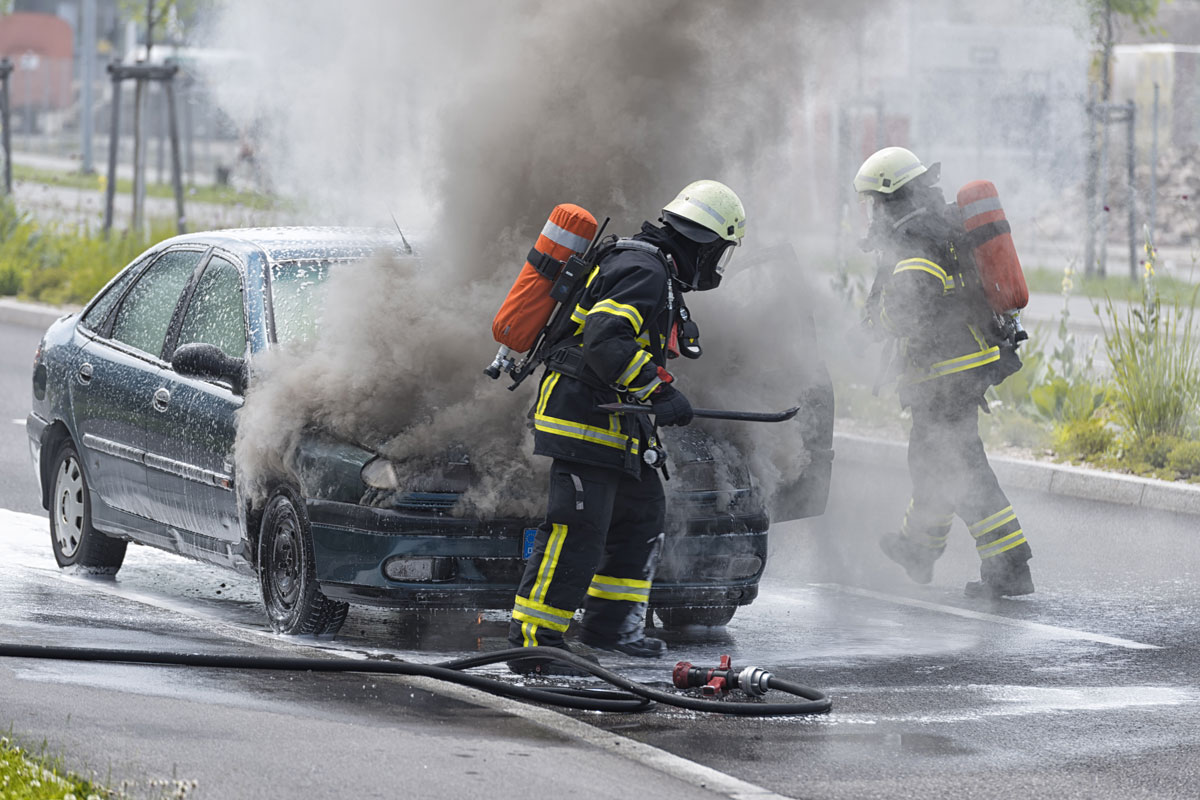
While motor oil itself isn't flammable, there is a risk that your engine can catch fire if it overheats or if oil is spilled onto the motor. This can be a scary situation for everyone in the vehicle, and it's important to know what to do in this situation.
While it can be difficult to do, it's important to remain calm and act quickly. As soon as you see smoke or flames coming from your vehicle, pull over to a safe area. Once you are pulled over, park the car and turn off the ignition.
It may seem like your personal items are important, but when it's a matter of life or death, leave them. Get yourself and everyone out of the vehicle and move at least 100 feet away from the vehicle.
When everyone is a safe distance away from the vehicle, call 911 and, if possible, warn oncoming traffic of the issue. At all costs, don't open the hood or try to put the fire out yourself. Doing so can increase the air supply to the fire, making the issue worse.
Final Thoughts
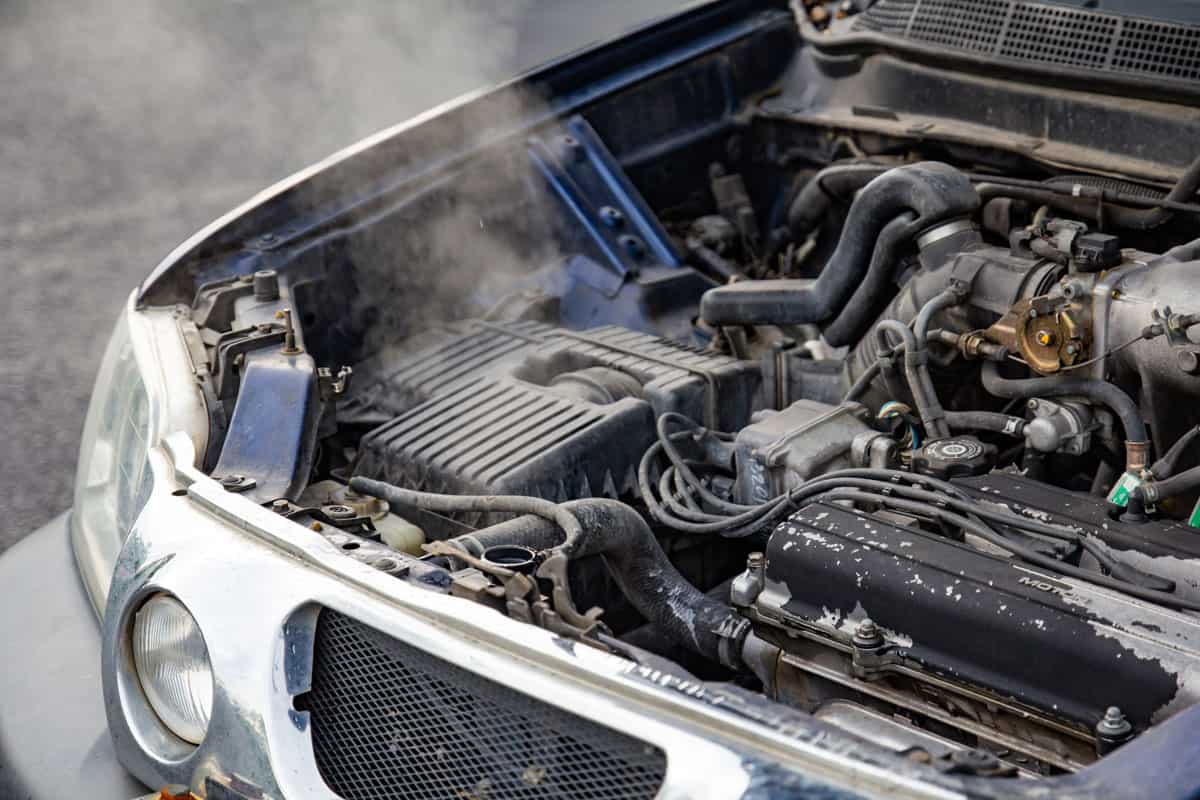
Overall, paying attention to your oil levels is important to ensure proper engine temperatures. Changing your oil on time will ensure your engine has a long life. If your engine does overheat, don't let the issue linger, and have it taken care of as soon as possible.
Made it to the end? Here are other articles you might find helpful:
How To Use Blue Devil Oil Stop Leak
Does Check Engine Light Come On For Oil Change? [Find Out!]
Can You Unplug Oil Pressure Sensor [Can I Drive With It Unplugged]?
